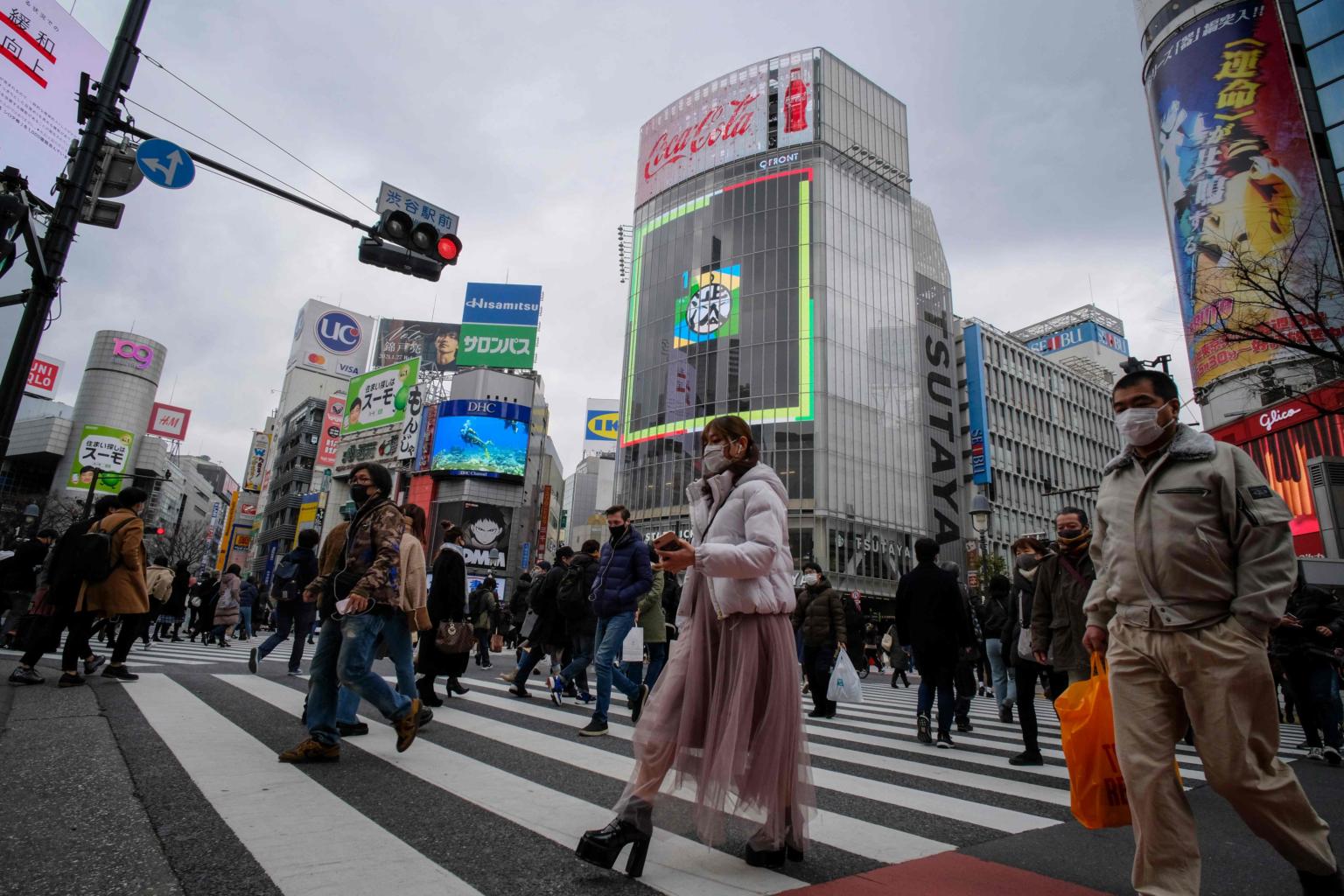Tokyo to remain under Covid-19 state of emergency as Japan lifts it in six prefectures
Sign up now: Get insights on Asia's fast-moving developments

A review of whether the decree could be lifted in the Greater Tokyo metropolitan area is due next week.
PHOTO: AFP
TOKYO - Japan will lift its Covid-19 state of emergency over six prefectures, including Osaka and Fukuoka, on Sunday (Feb 28), a week ahead of schedule, although it will remain in effect in the Greater Tokyo area.
The emergency is set to expire on March 7.
Announcing the decision on Friday (Feb 26), Prime Minister Yoshihide Suga pointed to the "significant reduction" in the number of new cases.
He said: "The number of hospitalised patients and those seriously ill has decreased. While the severe situation at medical institutions is continuing, the burden is less than before."
He also warned the public against immediately letting their guard down. In what may yet foreshadow policy guidelines in the Greater Tokyo region when the emergency is lifted, businesses in the six prefectures will continue to be offered subsidies if they shut early.
Mr Yasutoshi Nishimura, the minister in charge of Japan's Covid-19 strategy, said: "There could be even more Covid-19 waves in future, so it is important to thoroughly implement measures to stop that from happening."
The state of emergency has helped to bring down infections nationwide from the record high of 7,949 cases on Jan 8 to 1,056 on Friday. The 80 deaths on Friday brought the overall death toll to 7,826.
The six prefectures where the emergency will be lifted - Aichi, Gifu, Kyoto, Osaka, Hyogo and Fukuoka - are home to some of Japan's largest cities, including Nagoya and Kobe.
A review of whether the decree could be lifted in the Greater Tokyo metropolitan area - Tokyo, Kanagawa in the south, Chiba in the east and Saitama in the north - is due next week. Concerns have emerged among public health experts that the rate of decline in infections has slowed in recent weeks and hospitals remain under pressure.
Tokyo registered 270 new cases on Friday - down from 353 a week earlier - though over 1,800 people remain hospitalised.
Japan's emergency measures are far less onerous than the lockdowns and circuit-breakers that have been imposed elsewhere in the world.
In the current emergency, no businesses were forced to shut, though eateries, bars and karaoke outlets were encouraged to close by 8pm. Events had to limit the number of attendees at half the venue's capacity or 5,000 people, whichever is lower.
Businesses which followed regulations and shut by 8pm qualified for 60,000 yen (S$750) a day in government compensation. With the lifting of the emergency, those that close at 8pm will get 40,000 yen, while those that close at 10pm qualify for 20,000 yen a day.
Mr Suga's government is stuck in a careful balancing act. The emergency has hurt business sentiment and household spending, while the prolonged duress has had spillover impact on society with a rise in suicides, a fall in marriages, and record low childbirths last year.
Experts warn that a premature exit will easily lead to a resurgence in infections, with the onset of spring and warmer weather on the horizon. Cherry blossoms are forecast to flower in Tokyo on March 15, and reach full bloom a week later.
"There is a danger it could send the wrong message that everything is all right now," Dr Toshio Nakagawa, chief of the Japan Medical Association, warned on Thursday.
Meanwhile, the fate of the Go To Travel domestic tourism campaign remains up in the air. Tourism Minister Kazuyoshi Akaba said that the government was not at the point of discussing any resumption. Source-based media reports also say that even when resumed, the amount of subsidies will substantially be limited in scope.
The government is banking its hopes on the steady roll-out of its vaccination programme as a way out of the crisis.
Japan began vaccinating its healthcare workers last Wednesday (Feb 17), while vaccination minister Taro Kono said this week that inoculations of senior citizens aged 65 and above will start on April 12 and end by June.
Yet the government is concerned that, even as it has secured enough vaccines for its entire population, hiccups due to supply constraints and logistical hurdles would delay the process.
Friday's announcement was overshadowed by Mr Suga's abrupt cancellation of plans to hold a customary press conference to update the public on the Covid-19 response.
Speculation was rife that the cancellation was an attempt to shield his top public relations official who was under fire this week after Mr Suga's eldest son, Sugei, treated her to a lavish dinner costing 74,000 yen.
Mr Suga denied this was the case, and that he would call a news conference next week on the "entire state of emergency, assessing the situation until the very end".


